Apply to a foreign university with confidence
- Properly fulfilled documents
- Perfect motivation letter
- Support from a personal mentor
- Offers from several universities
Article score: 4 out of 5 (1 review)
You can enroll in a master's program at a French university only with a bachelor's degree in the same scientific field. What other requirements are there for admission to France? In the article you will learn everything about documents, exams and legalization of a diploma for a master's degree.
Free consultation
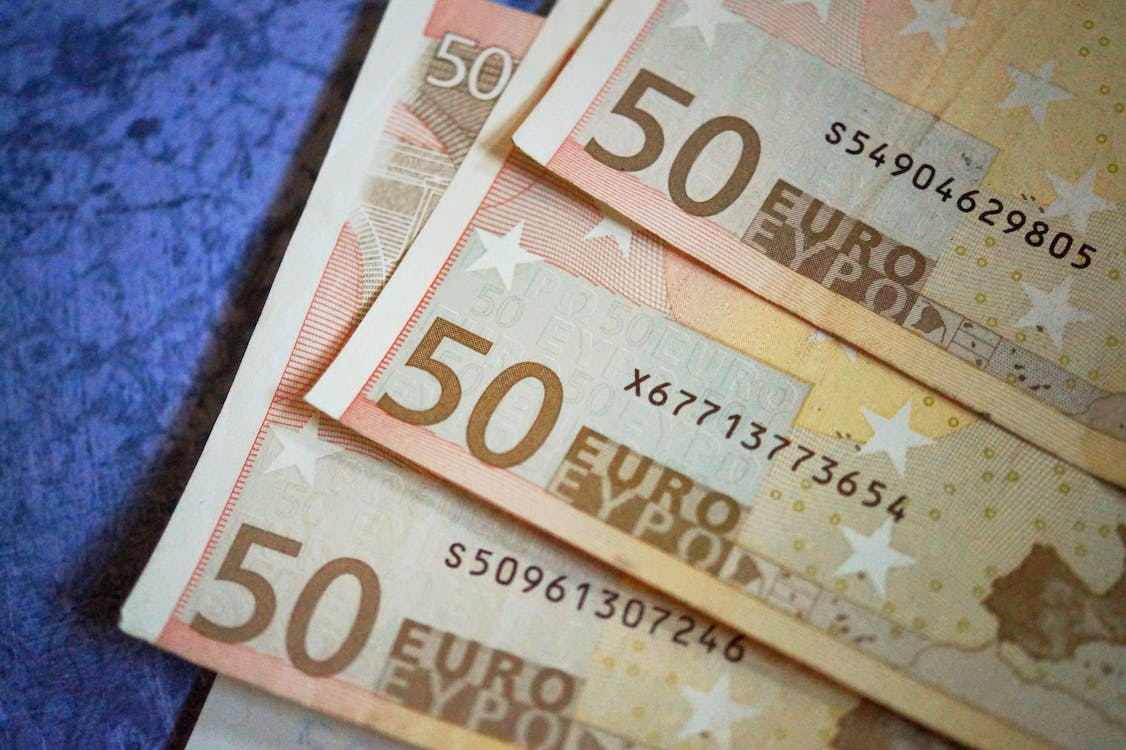

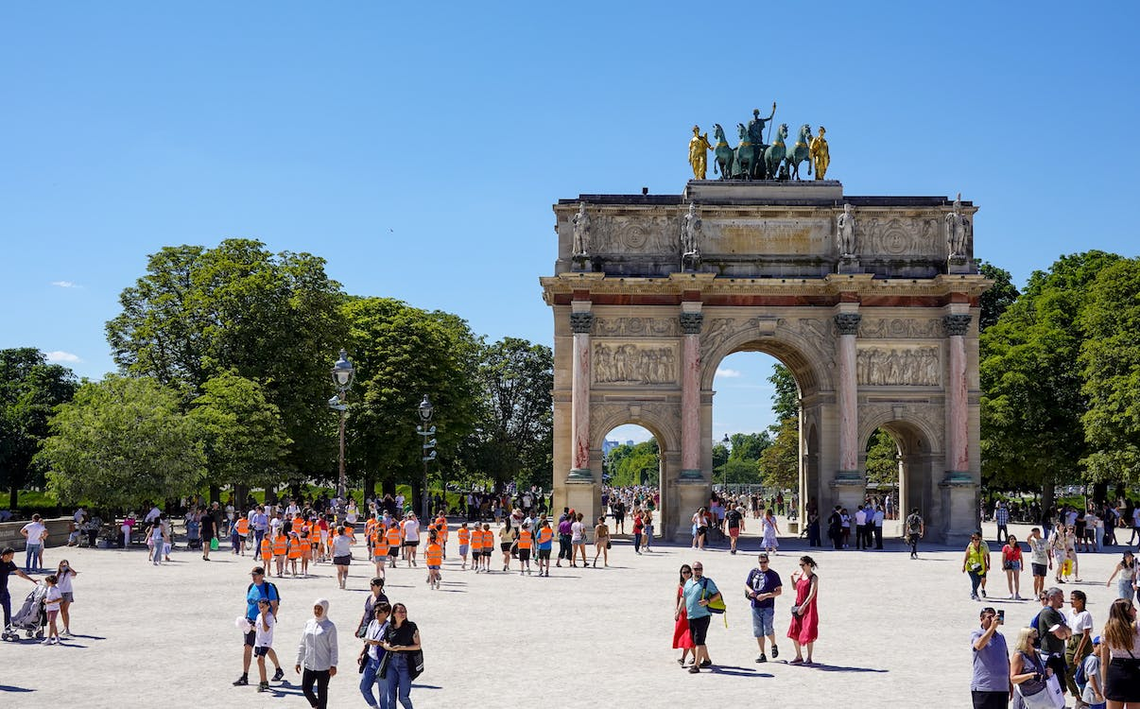



Items 1-6 of 915
Advanced search| Expense | Average cost |
|---|---|
| Exams | 73 USD |
| Campus France processing fee | Depends on the country |
| Rent | 791 USD/month |
| Food | 68 USD/month |
| Transport | 71 USD/month |
| Visa | 56 USD |
| Insurance | Free |
| Study materials | 56 USD/month[2] |

The admission procedure depends on the type of educational institution — public / private university or grande école. Documents in the public university can only be submitted through the organization Campus France. It deals with the processing of all applications of foreign students. According to the rules of the French Foreign Ministry, foreign candidates can choose no more than 7 universities in one or more related specialties[3]. Usually the change of specialty is impossible. A candidate has to continue the studies in the same scientific field as during the Bachelor's degree.
Students from 45 countries participating in the program Etudes en France go through several stages:
Important: not all universities accept applications through the online dossier. Some universities are not connected to the system and require sending documents by mail. But even if an applicant fills out the application themselves, it is still necessary to go through all the stages of the Etudes en France procedure before contacting the consulate — without registering for Campus France, it’s not possible to apply for a visa.
Also note that some universities establish additional entrance tests — an interview, an exam or presentation of a future research project.
Once a student successfully enrolls, they must immediately apply for a visa. Master's students receive a long-stay visa, which is equivalent to a residence permit. Read more about the process of obtaining it here.
Admission to the Master's degree program (Mastère spécialisé) at the grandes écoles is not standardized. The procedure and the specific list of documents depend on the specific educational institution, and applications, as a rule, are submitted in the applicant's personal account on the university website. To enter higher education, a candidate needs to pass a specialized exam — for example, GRE or GMAT.
Approximate list of documents:
In addition to the standard set of documents for admission to French public universities, it is also possible to attach a copy of the employment record book. This is necessary to demonstrate professional experience, especially if the applicant had worked in the same specialty for which they are applying. Also, sometimes a letter from the future academic advisor in France needs to be provided.
Grandes écoles often require specialized exams and organize additional entrance tests (interviews, portfolio assessment, presentation and/or defense of a research project).
The minimum level of French for admission is B2. Some specialties, such as Law, require C1 level for enrollment.
Important: All documents must be notarized and translated into the language of the chosen program (French or English). The exact list must be checked on the website of the selected university.
Unless there is an agreement between France and the applicant’s country on the mutual recognition of education, qualifications and academic degrees, students from other countries must go through the procedure of legalization. This is necessary for the educational document to have legal power abroad. Since France is included in the list of 120 member countries of the 1961 Hague Convention, the process is simplified: it is enough to add a special sign — an apostille.
Each academic year, the deadline for submission changes. As a rule, the acceptance of applications through Campus France opens at the beginning of December. Before the beginning of March, applicants must create, fill out and send for verification an electronic dossier; by the end of April — pay the registration fee and pass an interview. If the application is sent through the Campus France system, the response will come in the dossier Etudes en France approximately until mid-May or early June. If documents are submitted to a university or a grande école that is not connected to the system, the answer will come directly to the personal account on the university website. After receiving the invitation, the student must confirm the decision to study at the selected university until July[3].
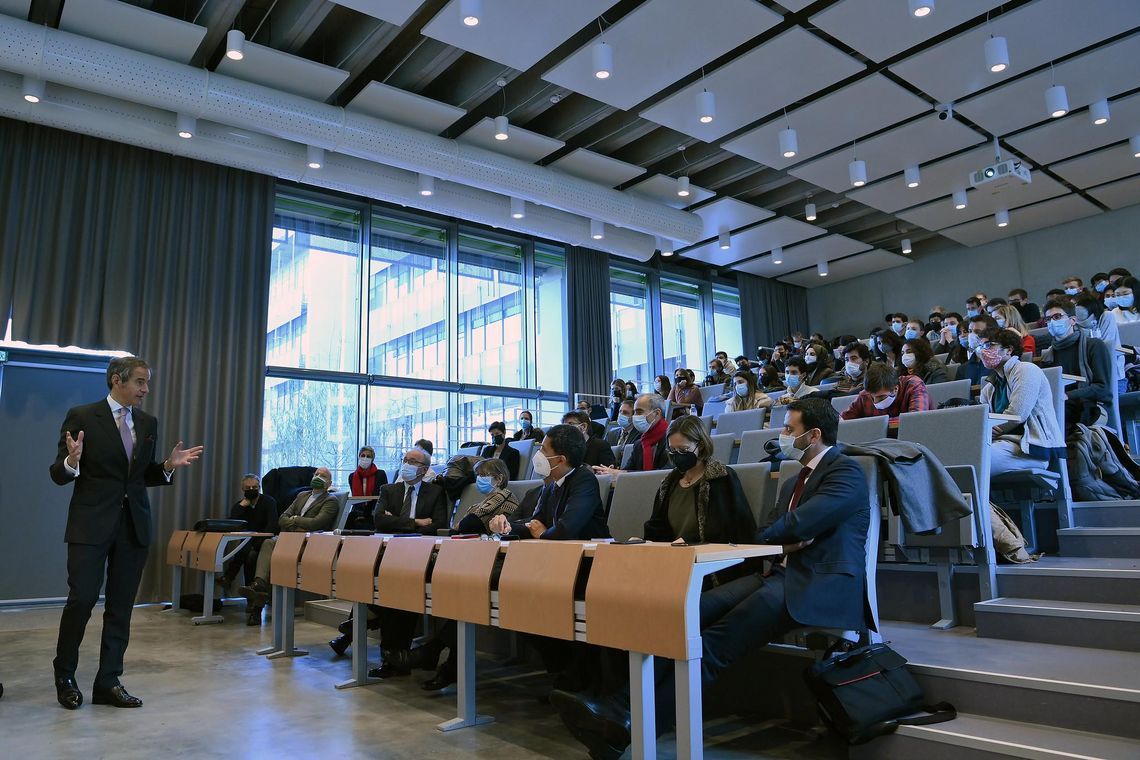
France strives to attract as many international students as possible. Therefore, out of 1600+ Master's programs, about 1200 are available in English. Mostly offered by grandes écoles, especially business and engineering schools. You can view the full list in the catalog of Campus France.
When choosing a specialty in English, it is important to consider several features:
| University | City | Program | Duration | Avg. cost per year for non EU-citizens |
|---|---|---|---|---|
| École Polytechnique de l'Université de Nantes | Nantes |
| 1 year | 8,475 USD |
| Institut Polytechnique de Paris | Paris |
| 1 year | 4,260 USD |
| Institut d'études politiques de Paris — Sciences Po | Paris |
| 2 years | 20,340 USD |
| Université de Paris | Paris |
| 2 years | 4,260 USD |
| Université Paris-Saclay | Paris |
| 2 years | 9,040 USD |

Master's degrees usually continue in the same direction as the Licence. The most developed areas in France are management, finance, commerce and business administration, which are studied in public universities and grandes écoles. The MBA originated in the USA, but France was the first European country to introduce that type of degree[4].
Here are some of the best programs according to the French rating of L'Etudiant[5].
| University | City | Programs | Duration | Avg. cost per year for non-EU citizens |
|---|---|---|---|---|
| Aix Marseille Université | Marseille |
| 2 years | 4,260 USD |
| Université de Bourgogne, IAE Dijon | Dijon |
| 2 years | 4,260 USD |
| Université de Caen Normandie, École Universitaire de Management | Caen |
| 2 years | 4,260 USD |
| Aix Marseille Université | Marseille |
| 2 years | 4,260 USD |
| Université Grenoble Alpes | Grenoble |
| 2 years | 4,260 USD |
| Université de Franche-Comté | Franche-Comté |
| 2 years | 4,260 USD |
| La Rochelle Université | La Rochelle |
| 2 years | 4,260 USD |
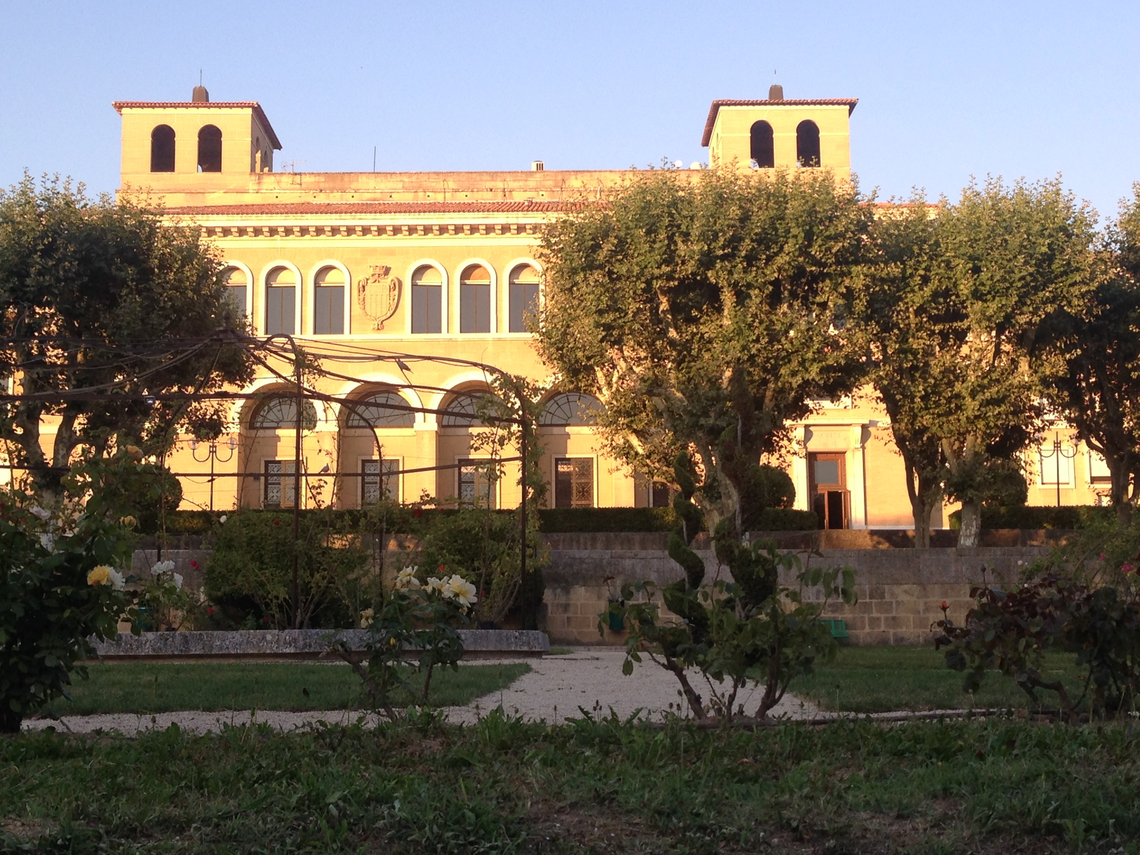
Most programs of public universities for non-EU students cost 4,260 USD per year, but there are universities in which there are partial benefits — exonérations partielles[6]. The current cost of training is to be clarified on the website of the selected university.
Here’s a list of some universities with partial benefits for international applicants:
| Type | University |
|---|---|
| State universities |
|
| University Groups (Communautés d'universités et établissements) |
|
| Higher normal schools (Écoles normales supérieures) |
|
| Universities of a special type (Grands établissements) |
|
Education in grandes écoles, as a rule, is much more expensive than in public universities. For example, at HEC Paris one year of Master's degree costs 2,400-17350 EUR[7]. But even there, relatively affordable programs can be found in different specialties.
| University | City | Tuition cost per year |
|---|---|---|
| Institut Mines-Télécom, Business School | Evry | 8,757 USD |
| École de management de Strasbourg, Université de Strasbourg | Strasbourg | 9,887 USD |
| South Champagne Business School | Troyes | 9,944 USD |
| EDC Paris Business School | Paris | 9840[8] EUR |
| École supérieure de physique et de chimie industrielles de Paris | Paris | 791 USD |
| École des Mines — ParisTech | Paris | 3,955 USD |
| École des Ponts — ParisTech | Paris | 3,492 USD |
| École nationale supérieure de techniques avancées — ParisTech | Paris | 2,994 USD |
| École nationale supérieure des télécommunications — Télécom ParisTech | Paris | 2,994 USD |
| École Centrale de Nantes | Nantes | 2,825 USD[9] |
| QS Ranking[10] | Business School | City | Duration | Cost |
|---|---|---|---|---|
| 6 | Institut européen d'administration des affaires (INSEAD) | Paris | 10 months. | 89000 EUR[11] |
| 5 | École des hautes études commerciales (HEC) | Paris | 15 months. | 32,035 USD[12] |
| 18 | École des Hautes Etudes Commerciales du Nord (EDHEC) | Lille | 10 months. | 12,797 USD[13] |
| 28 | Grenoble École de Management | Grenoble | 18 months. | 36,103 USD[14] |
| 31 | Emlyon business school | Lyon | 11 months. | 19,775 USD[15] |
| 43 | Institut d'Economie Scientifique et de Gestion (IESEG), School of Management | Lille | 18 months. | 24,259 USD[16] |
State Master's Degree (Diplôme national de master, or DNM) can be awarded by educational institutions like EPCSP (établissements publics à caractère scientifique, culturel et professionnel). Those can be both universities and some grandes écoles. Since France has European credit system, the main condition for obtaining a degree is to have a total of 300 credits (120 for Master's studies and 180 for undergraduate studies[17]).
The type of degree awarded depends on the particular institution of higher education. In public universities, as a rule, you can get:
Important: after two years of Master professionnel, you cannot enter doctoral studies directly. However, after the first course, you can change the specialization to Master recherche.
In some universities, there is no longer a division of the Master’s studies into two levels. Instead, students choose a professional or scientific direction before entering, study for two years and immediately receive a Master 2.
Grandes écoles, which are part of the CGE (Conférence des Grandes Écoles), also award Master 1 and Master 2, but in addition to this they issue special degrees, for example:

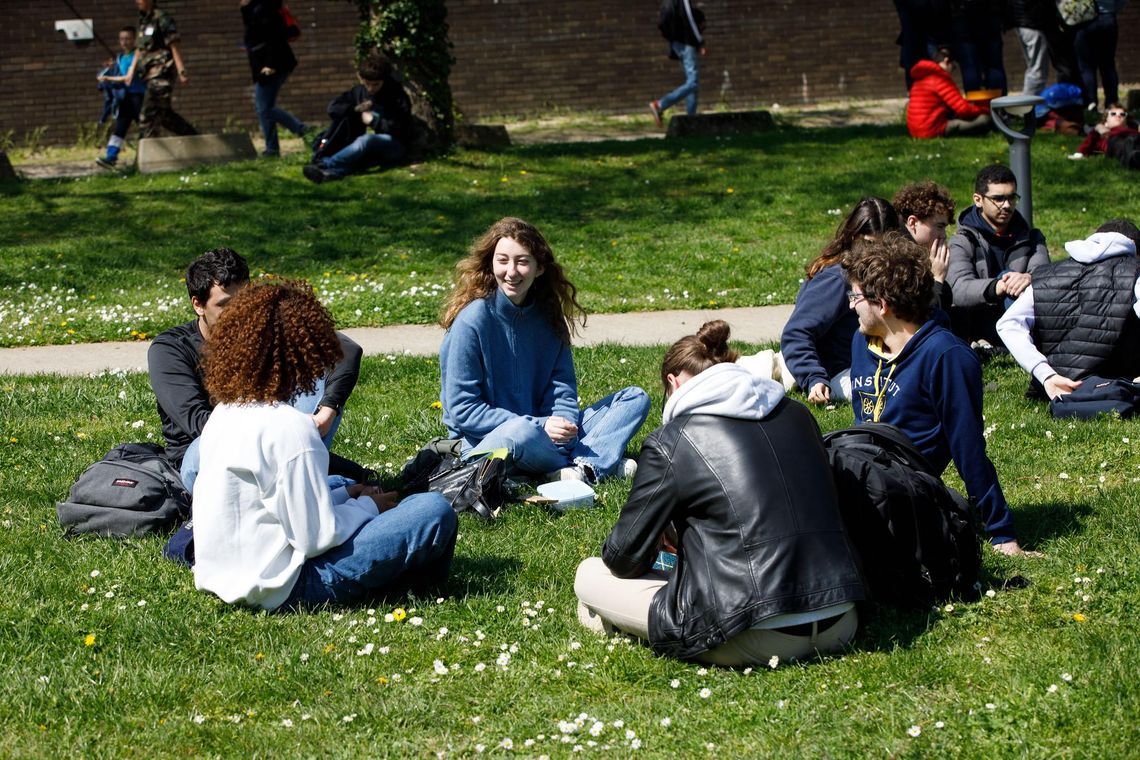
The academic year lasts from September to June. The application process depends on the program and the university. A Master's degree at a public university lasts four semesters and includes theoretical, methodological and practical classes, as well as one or more internships. In total, students study 25-30 hours per week[20]. A lot of time is devoted to self-study, especially when writing a scientific work (la rédaction d'un mémoire). Grades for current assignments and exams are given on a 20-point scale. To get a sufficient number of study credits, students need to have an average of at least 10 points during the semester.
Writing a mémoire (graduate work or dissertation) is a mandatory final stage of studies. Some universities offer research methods courses, but the organization of the process is up to students and requires self-discipline. Regardless of the university, the general steps for creating a mémoire are:
The total number of pages for a research paper is 60-90 pages[21].
Studying at grandes écoles is different from studying at public universities. Students have more freedom, often there is not even compulsory attendance. However, missing classes is rare. It is much more difficult to enroll in these institutions, and education is expensive, so students understand the value of their studies. Much attention is paid to the development of professional skills and internships; practice in one of the partner companies is an obligatory element of the program.
A long-stay student visa entitles you to part-time work — no more than 18-20 hours per week. In France, the minimum wage is guaranteed (salaire minimum interprofessionnel de croissance — SMIC). Today it is 12 USD per hour[22]. When calculating the final salary, you need to deduct the mandatory social security contributions — about 20%[23]. So, working 20 hours a week, a student can earn at least 741 USD monthly.
There are three main employment options available to students:
Internships are most commonly a compulsory part of the program at public universities, however, their importance is lower than that of the main course. Duration is one to six months. Students can take an internship both in a private and in a public organization. Is it compulsory to pay interns only if the internship lasts more than two months. Shorter employment can be either paid or unpaid, depending on the conditions of the employer. Minimum payment — 4 USD per hour[24].
As a rule, internships go like this:

Education in public universities is not free. But students have the opportunity to receive a scholarship or research grant.
If a graduate student wants to start working in the country, they need to obtain a temporary residence permit (autorisation provisoire de séjour — APS). It allows you to stay in France for a year after graduation. Before signing an official contract, it is possible to work under the same conditions as while studying at the university — no more than 964 hours per year[26]. The validity period of the APS can be extended for one more year. To do this, a graduate has to find a job in the field relevant to their degree with a salary of at least 2,634 USD[27] and apply for a residence permit for employees and temporary workers (carte de séjour salarié ou travailleur temporaire).
According to the Times Higher Education international rating, the best career prospects are available to graduates from three Parisian educational institutions[28]:
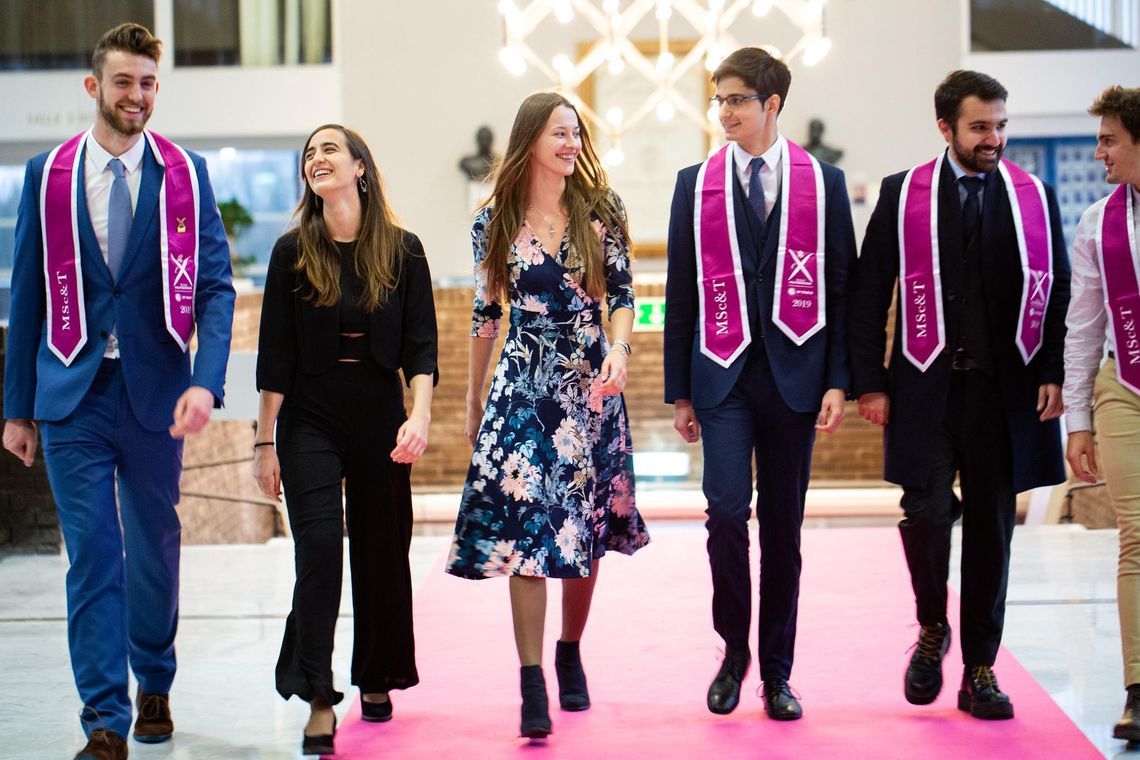
The fastest to find work after a Master's degree are specialists in the fields of law, economics, management, science, technology and healthcare. For them, it takes, on average, 18 months, while a liberal arts Master’s requires 30. A degree in law, economics or management also increases the chances of an open-ended employment contract (contrat à durée indéterminée — CDI). The highest employment rate after graduation is for Masters in education: 95% are employed in government institutions[29].
Masters are highly valued in the labor market not only in France and other European countries, but all over the world. A European degree is an indicator of quality education for employers.
Masters can continue their studies and pursue a PhD. PhD programs, on average, last three to four years. The learning process is similar to other European universities, but there are also some peculiarities:
After completing doctoral studies, you can start a scientific career. A special feature of the French academic path is the division of teaching positions not only on the basis of the type of contract, but also by responsibilities. The path to the highest position of Professor may be different in each institution, but, typically, each subsequent promotion requires passing the agrégation du supérieur — a series of tests of the higher education committee[32].
| Position | Type of contract | Average salary per month |
|---|---|---|
| Maître de conférences (MCF) | Permanent | 4,367 USD[33] |
| Chargé de recherche (CR) | Permanent | 4,395 USD[34] |
| Professeur agrégé (PRAG) | Permanent | 4,017 USD[35] |
| Maître de conférences associé | Permanent | 500-1000 EUR[36] |
| Professeur des universités (PR) | Permanent | 5,623 USD[37] |
| Directeur de recherche (DR) | Permanent | 5,729 USD[38] |
| Professeur des universités associé | Permanent | 2000 EUR[39] |
| Attaché temporaire d'enseignement et de recherche (ATER) | Temporary | 2,486 USD[40] |
| Post-doctorant | Temporary | 3,309 USD[41] |
| Doctorant contractuel | Temporary | 1400-1600 EUR[42] |
| Chargé d'enseignement | Temporary | 3,071 USD[43] |
60+ countries
we work with
$1,000,000 saved
by students through scholarships
6,400 offers
our students got